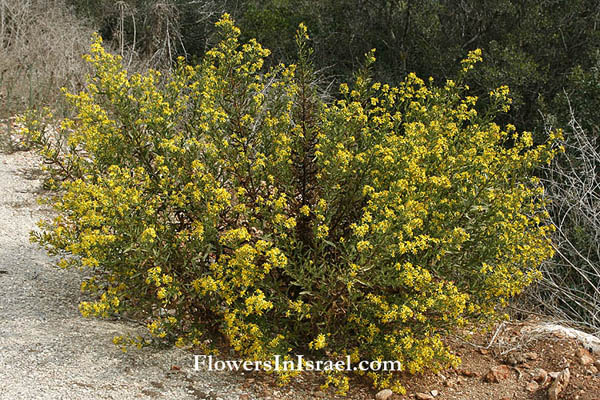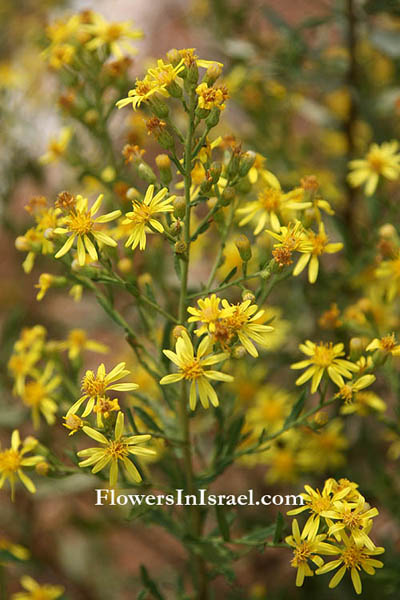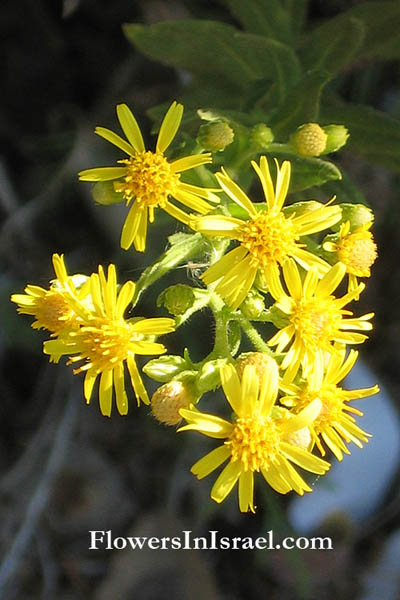Hebrew: טיון דביק, Arabic: نويطلا
| Scientific name: | Inula viscosa (L.) Aiton | |
| Synonym name: | Dittrichia viscosa (L.) Greuter | |
| Common name: | False yellowhead, Strong-Smelling Inula | |
| Hebrew name: | טיון דביק | |
| Arabic name: | نويطلا At-Teewan | |
| Plant Family: | Compositae / Asteraceae, מורכבים |

|
| Life form: | Chamaephyte | |
| Stems: | 50-150cm, often woody below, with a strong bituminous smell on bruising; stems of the plant are coated with a sticky resin | |
| Leaves: | Alternate, narrowly lanceolate to oblong, pointed or acuminate, entire, dentate or serrate, stalkless, sticky | |
| Flowers: | Yellow heads, campanulate, in loose pyramidical panicles: rays c.1cm; involucral bracts linear; apressed | |
| Fruits / pods: | Cypselae; spindle-shaped, hairy; pappus-hairs whitish | |
| Flowering Period: | July, August, September, October, November, December | |
| Habitat: | Riparian | |
| Distribution: | Mediterranean Woodlands and Shrublands, Semi-steppe shrublands, Shrub-steppes, Deserts and extreme deserts, Montane vegetation of Mt. Hermon | |
| Chorotype: | Mediterranean | |
| Summer shedding: | Perennating |

Derivation of the botanical name: inula, from Helen of Troy, being fabled to have sprung up from the ground where her tears were supposed to have fallen. viscosa, sticky, clammy; referring mainly to the sticky exudate from the glandular hairs. Dittrichia, named for the German botanist Manfred Dittrich (1934- ). The Hebrew name: טיון, tayun (New Hebrew), elecampane, inula.

|